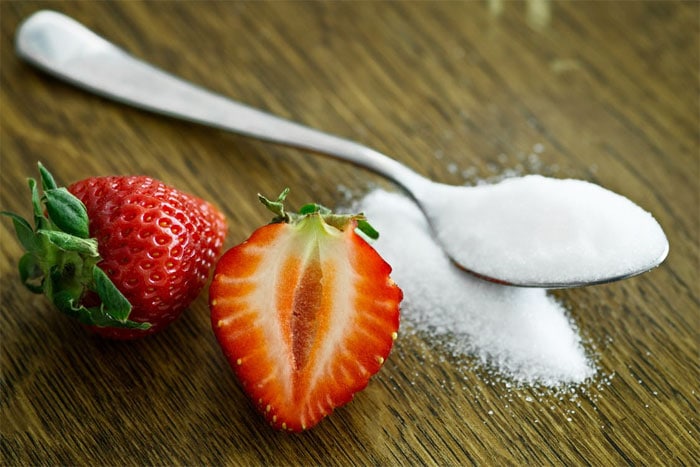
Written By: Gloria Tsang, RD
Title: Founding Registered Dietitian
Alumni: University of British Columbia
Last Updated on:

This is probably the most common misconception about diabetes. If you have diabetes, you do need to watch your sugar and carbohydrate intake to properly manage your blood sugar level with the help of your Registered Dietitian. However, if you do not have diabetes, sugar intake will not cause diabetes. So far, a diet high in calories, being overweight, and an inactive lifestyle are the main risk factors for Type 2 diabetes.

A study published in Diabetes Care (April 2003) re-confirmed that sugar does not cause diabetes. In this study, researchers analyzed data on nearly 39,000 middle-aged women, all of whom completed a 131-item food questionnaire. Six years later, there were 918 cases of Type 2 diabetes reported. Researchers found no definitive influence of sugar intake on the risk of developing Type 2 diabetes.
The simple answer is No. Although sugar does not cause diabetes, excessive calories does. Excess caloric intake usually results in overweight and obesity – which is the main risk factor for diabetes.
Bottom Line: Although excessive sugar intake is not the direct cause of Type 2 diabetes, overweight and obesity is one of the risk factors. To prevent diabetes, maintain a healthy weight and follow a healthy lifestyle with regular physical activity and a sensible diet.
Alumni: University of British Columbia – Gloria Tsang is the author of 6 books and the founder of HealthCastle.com, the largest online nutrition network run by registered dietitians. Her work has appeared in major national publications, and she is a regularly featured nutrition expert for media outlets across the country. The Huffington Post named her one of its Top 20 Nutrition Experts on Twitter. Gloria’s articles have appeared on various media such as Reuters, NBC & ABC affiliates, The Chicago Sun-Times, Reader’s Digest Canada, iVillage and USA Today.
Inflammatory Bowel Disease IBD Diet for Crohn’s Disease and Colitis
Benefits of Lutein in Eye Disease Prevention – Macular Degeneration and Cataract